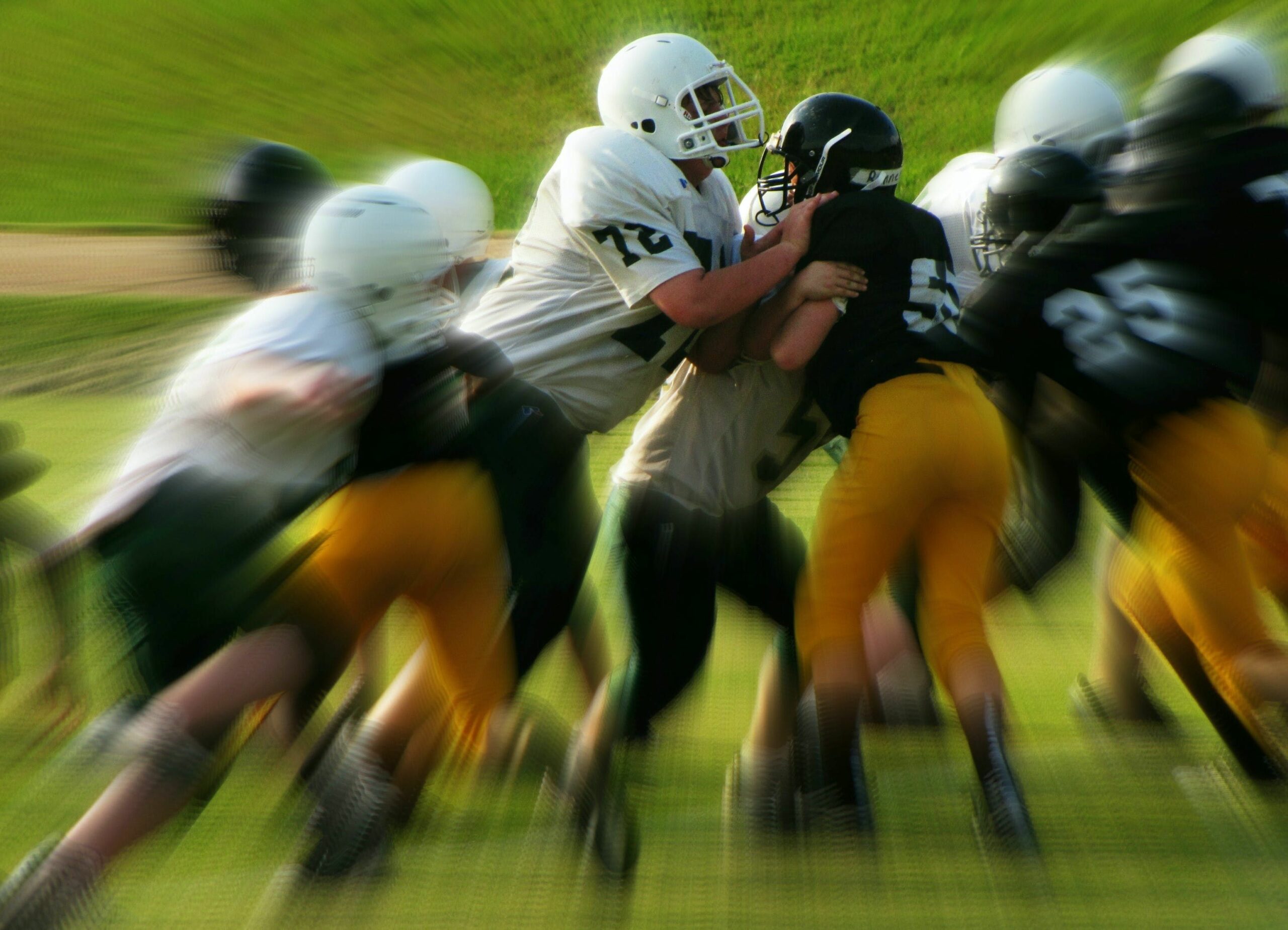Sports are a huge part of the culture in the U.S., especially when it comes to football. From high school games to the family pickup game at Thanksgiving to big Super Bowl parties, football is tightly woven into so many American traditions.
We think of football players as tough, willing to take a hit, and as irrepressible when they get back up from a punishing play. But, while all of this may be true, research now shows that they’re also especially vulnerable to a dangerous condition called chronic traumatic encephalopathy (CTE), which has the potential to leave them with irreversible brain damage.
While there’s no cure, a compound found in Cannabis sativa and hemp plants—cannabidiol (CBD)—may help ease symptoms of this devastating condition.
What is CTE?
Chronic traumatic encephalopathy is a degenerative brain disease, which causes symptoms similar to Alzheimer’s disease. CTE is characterized by neurological and physiological changes in the brain such as the buildup of tau, an abnormal protein. In CTE, tau builds up and clumps in areas of the brain where it shouldn’t be, disrupting brain functions.
Unfortunately, there’s no way of diagnosing CTE while someone is alive. It can only be confirmed after death by examining the brain for tau deposits. Researchers are making strides, though; the team at the Chronic Traumatic Encephalopathy Center at Boston University announced earlier this year that magnetic resonance imaging (MRI) may be able to detect brain shrinkage or changes in white matter to identify CTE in the living.
What Causes CTE & What Are the Symptoms?
Unlike some other neurological diseases, like Alzheimer’s, CTE has a clear cause—trauma from repeated concussions. First noted among boxers, and now well known as a condition that affects football players, this incurable disease can affect anyone with a history of concussions. But most of the conversation about CTE is in relation to contact sport athletes. The repeated blows to the head, falls and collisions during these sports can cause repeated concussions and lead to CTE.
This difficult-to-live-with condition causes symptoms that include the following:
- Anger, depression, anxiety and other mood disturbances
- Impulse control
- Deterioration in attention, concentration and memory
- Disorientation, dizziness and confusion
- Headaches
- Poor judgment
- Slowed muscular movements
- Difficulty walking, speaking and swallowing
- Tremors
- Vertigo
- Drooping eyelids
- Deafness
While there are some pharmaceutical options to address the symptoms of CTE, there’s no cure or established treatment for the disease.
Can Athletes Take CBD?
Thankfully, CBD offers help where conventional medicine is lacking, but unfortunately, not everyone has access to medical marijuana. As well, those who are most in need of CBD—elite athletes at all levels—are usually barred from taking it, because it comes from cannabis. Cannabis is still a Schedule 1 substance in the U.S. and most sports organizations ban its use.
The World Anti-Doping Agency recently removed CBD from its list of banned substances. But the major sports leagues in the U.S., including the NFL and NBA, still prohibit anything related to cannabis, no matter where it comes from. Even when CBD comes from hemp (which is just cannabis with very low levels of THC), it’s still not allowed for these athletes.
Players are starting complain. Some have begun to use CBD and, realizing how helpful it can be, are fighting to change the rules.
Jake Plummer, a former professional football quarterback, shared his positive results as well: “Since I started taking CBD regularly, there are no more slow-moving, dreadful days with headaches, joint stiffness and wandering thoughts.”
As studies continue to find more and more confirmed cases of CTE in deceased athletes, it’s becoming more urgent than ever to bring awareness to the role CBD could play in protecting the brains and lives of these vulnerable competitors.
How CBD Can Help Prevent Concussions & CTE
So, how does hemp-derived CBD help these athletes fight CTE? There are a few ways.
Most importantly, CBD is a powerful neuroprotectant. In fact, the U.S. government holds a patent for CBD—a way for them to research using CBD in this way.
Lester Grinspoon, a cannabis researcher and professor emeritus from Harvard University, believes NFL players should play with CBD in their systems, saying, “I would have each individual take a capsule an hour or two before they play or practice.”
Research suggests that when patients have CBD in their brains, they’re less likely to be damaged by traumatic injuries. So, CBD could be used preventatively to protect the brain’s neurons during a concussion.
Additionally, CBD may help protect the brain even after injury. Research on Alzheimer’s disease shows that CBD works to protect the brain by inhibiting the accumulation of tau—that nasty protein that accumulates in both the brains of those with Alzheimer’s and those with CTE. Taking CBD for CTE may help reduce or prevent buildup of tau, avoiding the loss of function that comes from these buildups.
To add to its list of positive effects on the brain, cannabinoids have also been shown to help promote the growth of new brain cells, potentially repairing damage that was already done.
Could CBD Address CTE’s Side Effects?
Besides protecting and repairing the brain directly, CBD can also help with many of the side effects of CTE. CBD is known for so many health benefits including the alleviation of these symptoms and more:
- Pain
- Inflammation
- Depression
- Anxiety
- Tremors
- Movement problems
This is because these symptoms are regulated by the endocannabinoid system (ECS). The ECS is a system of receptors throughout the human body, which are activated by cannabinoids from marijuana, as well as endocannabinoids that the body naturally produces. When our natural endocannabinoids fail to properly regulate these functions, such as with CTE, adding plant cannabinoids like CBD can help activate the system, restoring balance.
It’s no wonder so many athletes suffering from these symptoms are now coming forward to share how helpful CBD has been for everything from their physical abilities to their state of mind.
Taking Hemp for CTE
If you’re considering consuming CBD for a brain injury, your first best step is to talk to a doctor who’s knowledgeable in cannabinoid treatments. You can consult with one HelloMD’s team members who is well-versed in cannabis science by video conference from the comfort and privacy of your own home.
Once a healthcare provider lets you know what dosing is appropriate for your condition, there is a wide variety of CBD products to choose from including hemp CBD tinctures, oils, lotions, bath soaks and even vape pens.
For those looking to avoid any psychoactive effects from THC, or folks who live in places where medical marijuana isn’t available, hemp-based CBD products are an easy option. Hemp has very low levels of THC, so these products won’t result in a head high. This means you can medicate throughout the day and still be able to work and take care of your daily responsibilities.
Suffering from the symptoms of CTE? Don’t wait for them to get worse—CBD may be the treatment you need.
Photo credit: Pixabay






